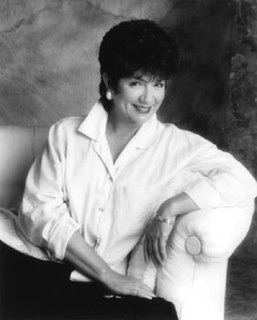A Quote by Marguerite Yourcenar
I don't think I ever relinquish a person I have known, and surely not my fictional characters. I see them, I hear them, with a clarity that I would call hallucinatory if hallucination didn't mean something else ... A character whom we create can never die, any more than a friend can die ... Through [my characters] I've lived many parallel lives.
Related Quotes
If people ever look down upon you for crying for fictional characters, you should give them a gentle, pitying look and feel bad for them. If they've never cried for a fictional character, then they've never loved one (and what a joy that is). If they've never cried at a book, a movie, a piece of music, then they've missed one of the great pleasures life has to offer. Just because fiction does not contain things that are real doesn't mean it doesn't contain truth, and we find it through the alchemy of our tears.
I don't like the strictly objective viewpoint [in which all of the characters' actions are described in the third person, but we never hear what any of them are thinking.] Which is much more of a cinematic technique. Something written in third person objective is what the camera sees. Because unless you're doing a voiceover, which is tremendously clumsy, you can't hear the ideas of characters. For that, we depend on subtle clues that the directors put in and that the actors supply. I can actually write, "'Yes you can trust me,' he lied." [But it's better to get inside the characters' heads.]
I have always liked kind of outsider characters. In the movies I grew up liking, you had more complicated characters. I don't mean that in a way that makes us better or anything. I just seem to like characters who don't really fit into. You always hear that from the studio: "You have to be able to root for them, they have to be likeable, and the audience has to be able to see themselves in the characters." I feel that's not necessarily true. As long as the character has some type of goal or outlook on the world, or perspective, you can follow that story.
You must create the character's internal life. What do I mean by internal life? I mean the thoughts, feelings, memories, and inner decisions that may not be spoken. When we look into the eyes of actors giving fully realized performances, we can see them thinking. We're interested in what they're experiencing that may never be spoken, that quality of nonverbal expression - which is as much a part of the characters as breathing and as real as what they say and do. This is their internal life. It helps us believe in the characters and care about them.
Never open your story with a character thinking, I advise my students. As a further precaution, don’t put a character in a room alone – create a friend, a bystander, a genie, for God’s sake, any sentient creature with whom your main character can converse, perhaps argue or, better yet, engage in some action. If a person is out and doing, it’s more likely that something interesting might happen to her or him. Shut up in a room with only his thoughts for company well, that way lies fictional disaster.
When you're training as an actor, a lot of the big work you're learning is to treat fictional characters like real people. You don't have the problem of discovering a backstory with real people, but there's always a mystery which is common to both fictional and factual characters. They are never quite the person you think they are.
There are those individuals who die for a cause, and we say they have made the ultimate sacrifice. We call them martyrs, and we never doubt their sincerity. Yet many others search their entire lives for something—or someone—worth dying for and this is very different. These are the lonely and the desperate, fearful that their lives have no meaning. They yearn for the bullet, if only someone else will pull the trigger.






































